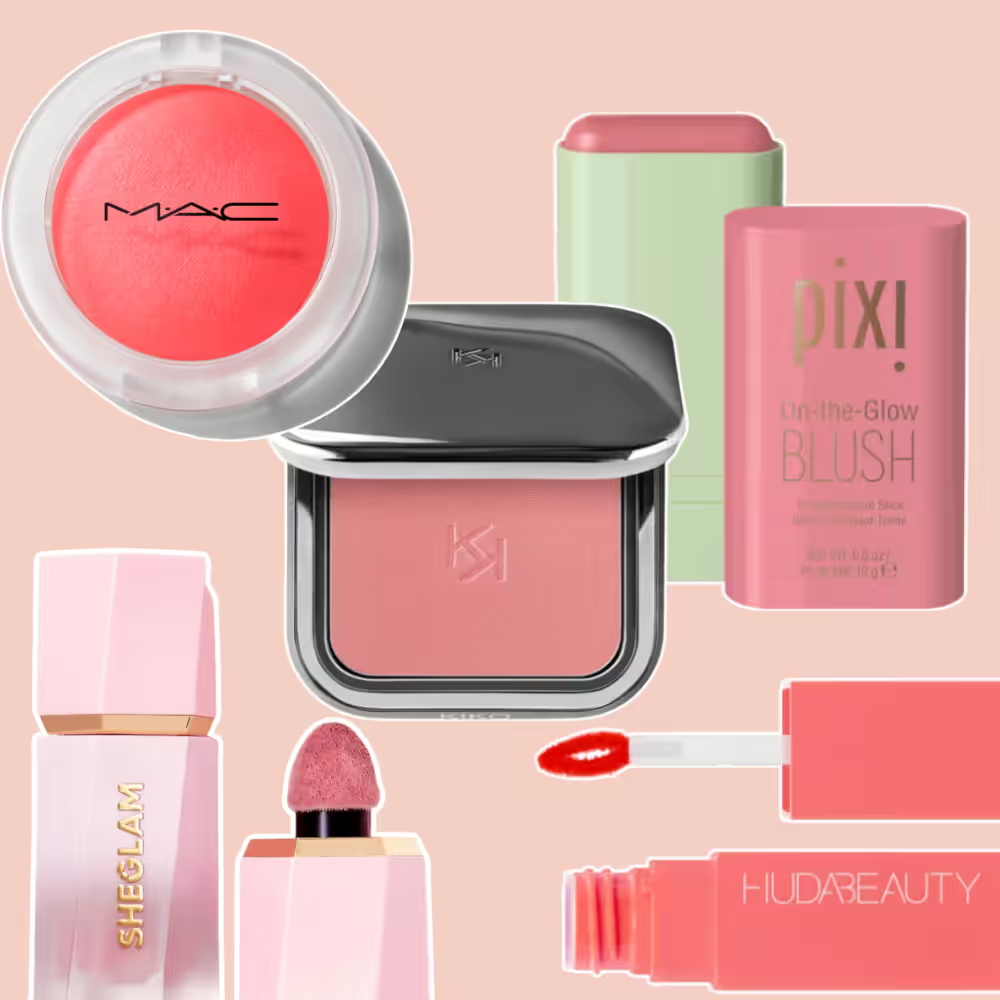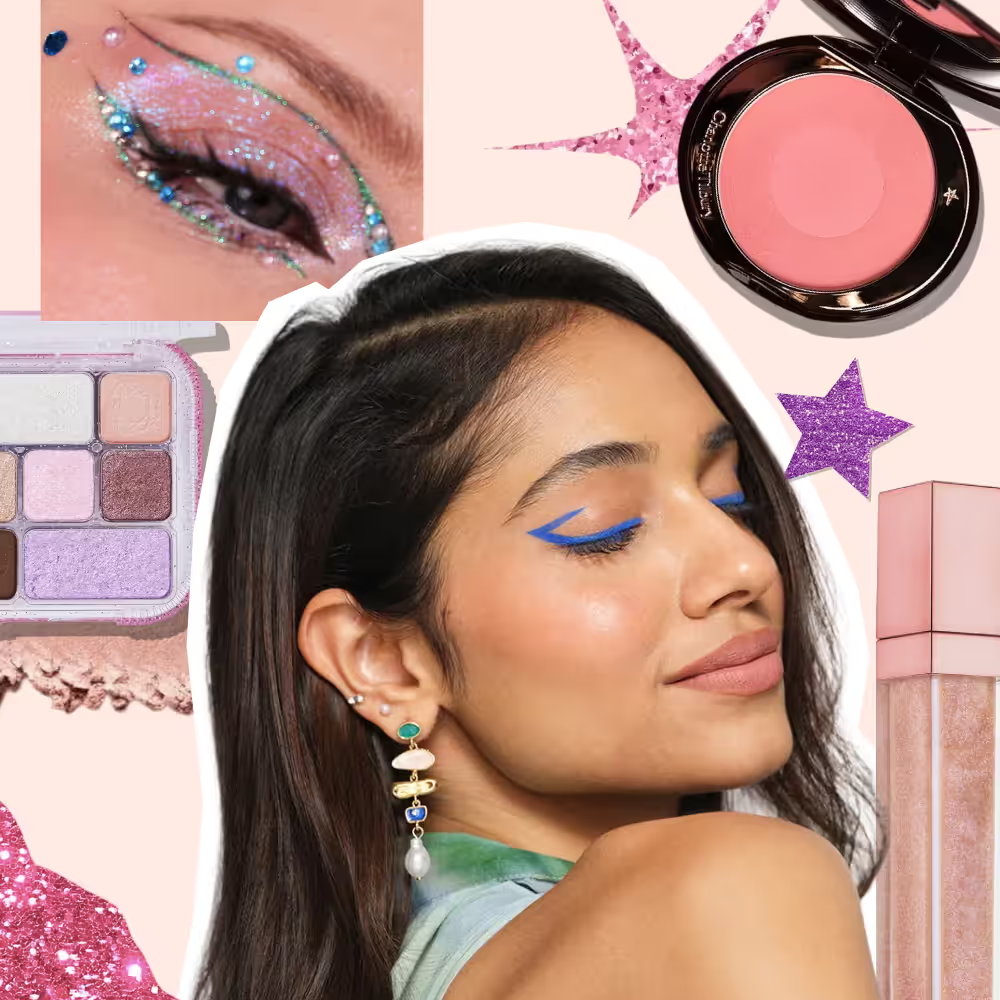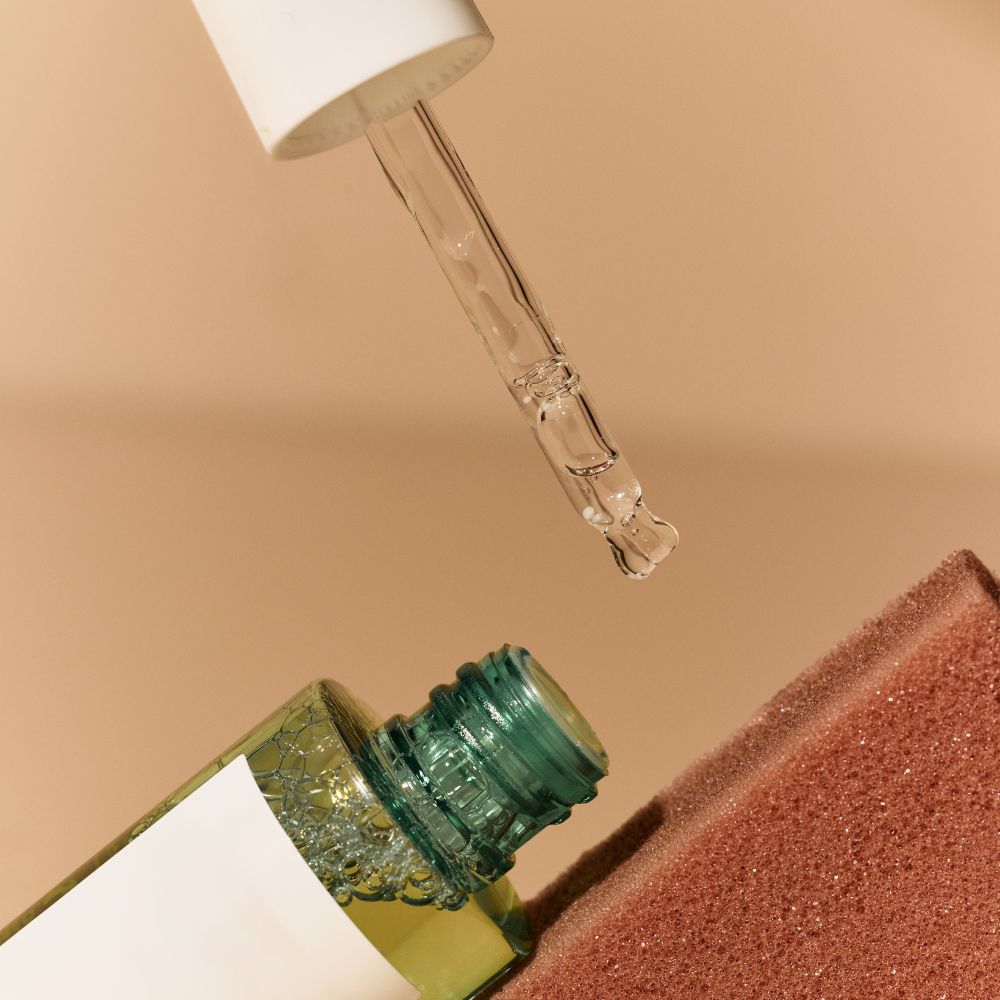
We live in a peculiar world. Both wearing and not wearing makeup can be empowering. All hail the wonder that is personal choice! A large part of confidence lies in comfort, whether derived from your bare skin or with a bit of foundation and mascara. But what happens when you have acne? Based on the belief that makeup products could exacerbate breakouts, conventional skin care tips for acne lean towards steering clear of makeup in entirety.
Just like everything else in the world, it doesn’t have to be so black and white. “Acne can be of many different types. The classifications are multiple, based on severity, varying between grade one to grade four, mild to severe and based on various causes,” explains dermatologist Dr Sravya Tipirneni. Understanding what kind of acne you have, along with its underlying cause, can help you decide how to apply makeup when you have acne. Read on for a dermatologist’s skin care tips to help you hack it.

First, a word of caution
Acne can be hormonal, genetic, diet-related, stress-related, or even triggered by overuse and experimentation with different formulations and products. Acne-prone skin tends to be more reactive, especially when makeup products have trigger ingredients. Fragrances, oils and preservatives can clog pores that then lead to further breakouts. “As one of the main skin tips for acne, I usually tell patients not to wear heavy occlusive formulations because these trap the oil and bacteria on the skin surface, and they lead to a whole vicious cycle of increased inflammation and irritation and worsening of your existing condition,” reveals Dr Tipirneni.
The final verdict on wearing makeup on acne-prone skin
At the end of the day, it’s a personal choice. “In some cases, I do advise patients to avoid wearing makeup altogether, particularly if the products are increasing skin irritation and acne,” confessed Dr Tipirneni.
However, we all live in a world ruled by social media, which in itself is a double-edged sword. On one hand, it has contributed to an increased obsession with appearance, with almost everyone using filters to show off smooth skin while demonstrating makeup tips, promoting unrealistic beauty standards. On the other hand, there is more acceptance and visibility of various skin types than ever before. In this world, certain professions demand done-up faces and, in such cases, take note of Dr Tipirneni’s advice on how to use makeup on acne-prone skin.
Choose products that are non-comedogenic and formulated for acne-prone skin. One of the best skin tips for acne is that proper skin prep prior to applying any product, along with regimented removal of makeup once done with it can help minimise the associated risks. “Stick to powder foundations and mineral makeup as they tend to be less pore-clogging than liquid or cream products. Matte or semi-matte finishes can minimise shine. Try to avoid glitter or shimmer, which can actually highlight your skin’s bumps and texture,” she adds.
Skincare sidekicks
If you wear makeup regularly with acne-prone skin, your skin needs some extra TLC. “Avoid fragrances, oils and alcohol. Instead, look for products with salicylic acid, benzoyl peroxide, niacinamide, and tea tree oil which can help manage acne without worsening it,” advises Dr Tipirneni. Additionally, she recommends patch-testing new products and introducing them slowly to minimise the risk of adverse reactions. Suggesting the ‘one cheek, one week’ testing method, she says, “Choose one area of one cheek for one week and only apply a new product there as a patch. So, even if you have a bad reaction to the product, you can easily identify which product is actually causing it.”
How to apply makeup when you have acne
This handy guide can improve the way your skin reacts to makeup:
- Start with a cleanser for acne-prone skin to clarify and adequately prep your skin
- Use the regular, gentle moisturiser that you’re most comfortable with.
- A lightweight, oil-free primer can also help create a smooth base for makeup application
- Choose makeup that is water-based. Oil-based formulations tend to be heavier and can clog your pores, leading to more breakouts. Oil-free foundations are ideal for acne-prone skin.
- If it’s during the day, don’t forget to apply an SPF before your foundation
- Use a green colour corrector to counter the redness that comes with active acne
- Remember to cover up your zits with spot patches to avoid direct contact with makeup, help minimise inflammation and promote healing
As for makeup removal, always double cleanse when taking it all off. “I highly advocate a double cleansing method using, say, an oil-based cleanser, followed by a water-based cleanser which can help ensure that all traces of makeup and impurities are completely removed,” adds Dr Tipirneni.







.PNG)
.PNG)
.PNG)

















